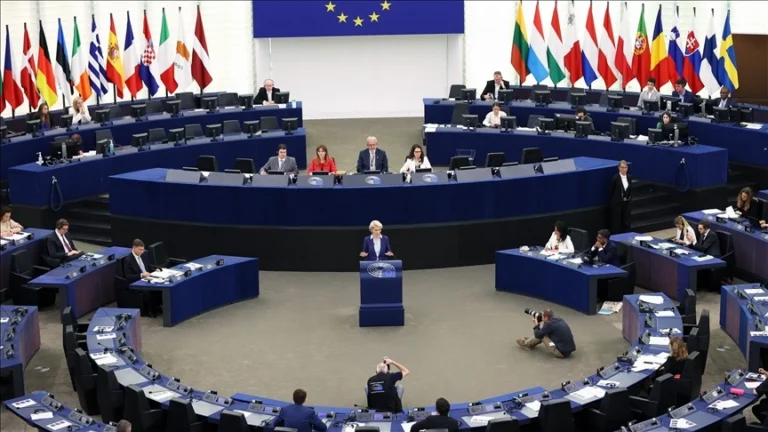5 Critical Developments in the Rising Suspension of Military Equipment Exports to Israel

Belgian court and Germany halt military equipment exports to Israel amid Gaza crisis, marking key steps in arms trade regulation and humanitarian concerns Photo: Perplexity 8/8/2025
August 8, 2025 Hour: 5:14 pm
Belgian court and Germany halt military equipment exports to Israel amid Gaza crisis, marking key steps in arms trade regulation and humanitarian concerns.
Related: Belgium Considers Renting Prisons Abroad
5 Critical Developments in the Rising Suspension of Military Equipment Exports to Israel
The issue of military equipment exports to Israel has gained unprecedented international attention following recent judicial and governmental actions in Belgium and Germany. In a pivotal moment amid the ongoing crisis in Gaza, these measures mark significant strides in regulating arms trade linked to conflict zones and reflect growing global concerns over humanitarian consequences. This article explores the most critical developments, legal contexts, and geopolitical implications surrounding the suspension of military shipments to Israel.

Military Equipment Exports to Israel: Belgian Court Orders Suspension and Fines
In August 2025, a Belgian court delivered a historic ruling mandating the Flemish government to cease all transit of military equipment to Israel. This decision came after the discovery of a suspicious shipment at the port of Antwerp containing tapered roller bearings, essential components used in tanks and armored vehicles dispatched to Ashot Ashkelon Industries, the exclusive supplier of the Merkava tanks utilized by the Israeli army in Gaza.
The court ordered the blocking of the identified shipment and prohibited any future export of arms to Israel under threat of a €50,000 fine for each violation. This ruling responds to a complaint lodged by four Flemish organizations, including the movement Vredesactie, emphasizing accountability for complicity in potential war crimes and human rights violations.
Since 2009, Belgium has officially banned arms exports to Israel; however, the regions independently control enforcement, revealing systemic gaps exploited by transport companies and exporters. The court criticized the Flemish government’s lack of proactive monitoring, only conducting inspections when transporters request them, thus failing in its legal responsibilities.
The ruling underscores a “crushing responsibility” of authorities to prevent indirect involvement in violations that may amount to war crimes or genocide in Gaza. This judicial precedent reinforces civil society’s vital role in arms trade oversight and demands urgent reforms toward effective embargo enforcement.
External Links:
Germany’s Suspension of Military Equipment Exports in Response to Gaza Offensive
Parallel to Belgium’s judicial intervention, the German government, led by Chancellor Friedrich Merz, announced an immediate suspension of military equipment exports to Israel that could be used in Gaza. This policy shift comes amid Israel’s security cabinet approval of a plan to capture Gaza City, escalating the 22-month conflict that has caused grave humanitarian distress.
Germany, historically one of Israel’s closest and largest arms suppliers in Europe, faces increasing domestic and international pressure to reassess its military support in light of worsening civilian casualties and supply shortages due to the blockade.
Chancellor Merz highlighted Germany’s continued support for Israel’s right to self-defense but stressed that the ongoing military operations deeply complicate the realization of these goals without disproportionate harm to civilians. The suspension thus reflects a recalibration of Germany’s longstanding policy, signaling a more cautious approach toward arms exports amid the escalating crisis.
External Links:
Geopolitical Context and Humanitarian Impact
These suspensions occur against the backdrop of an intense humanitarian crisis in Gaza, exacerbated by the Israeli blockade and ongoing military operations. The use of advanced military equipment in densely populated civilian areas has drawn international condemnation, demonstrating how arms exports correlate directly to humanitarian outcomes.
Belgium’s fragmented regulatory system and Germany’s shift in export policy represent critical moments in the global debate on the ethics and legality of arms trade. These actions underscore the increasing demand for accountability from governments and the defense industry to prevent enabling war crimes and exacerbate civilian suffering.
The involvement of civil society organizations, judicial systems, and political leadership points to a growing insistence on integrating human rights considerations into arms export decisions, highlighting that economic and strategic interests must not override the protection of vulnerable populations.
Author: JMVR
Source: Al Mayadeen

